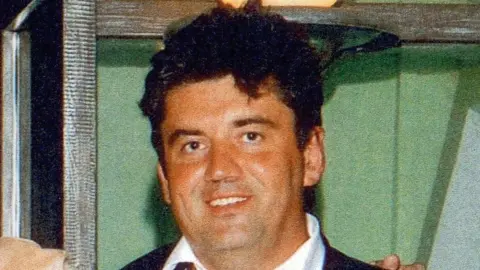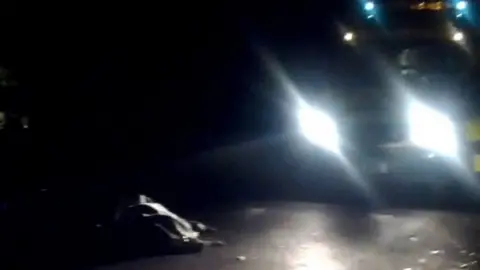Alexander Perepilichnyy inquest: Russian whistleblower found choking
 BBC
BBCA Russian whistleblower who may have been poisoned vomited a "greeny-yellow" liquid, an inquest has heard.
Alexander Perepilichnyy, 44, collapsed and died while jogging near his home within a gated community in Weybridge, Surrey, in November 2012.
Traces of a plant-based poison were found in his stomach, a pre-inquest hearing was told.
Chauffeur and security guard Neil St Clair-Ford found the wealthy Russian making a "choking" noise in the road.
Mr Clair-Ford told an inquest at the Old Bailey he had been driving around the St George's Hill Estate when he saw "something white lying in the road".
He said he did not know Mr Perepilichnyy but recognised him as a regular jogger.
'Pale, cold and trembling'
Mr Clair-Ford said the ill man was lying in the road, with his knees braced in the recovery position.
He told the hearing Mr Perepilichnyy was pale, cold and "trembling", and displayed "very faint" signs of life.
 Reuters
ReutersMr Clair-Ford said he had called a former "Navy special forces" colleague Liam Walsh to help give Mr Perepilichnyy first aid.
Both men noticed the Russian national had a small cut on his head when they turned him over.
Mr Walsh told the inquest Mr Perepilichnyy had vomited "greeny-yellow" bile during mouth-to-mouth resuscitation.
He said it had a strange taste, like "licking a battery", but had no unusual odour.
Robert Wastell, counsel for the coroner, asked Mr Walsh: "Did you suffer any problem with your mouth afterwards? Any blistering or skin coming off at all or any illness?"
Mr Walsh said he had not, but had noticed two strange things about the scene - firstly, the positioning of his body in the road and, secondly, that he appeared to have fallen straight down and not staggered.
The inquest heard from PC Douglas Pasley, who said he saw nothing suspicious in the area near the body.
He said he had to make a judgement about whether there was any "foul play", and looked for signs indicating something untoward had occurred, but found nothing.
'Hit list'
Robert Moxon Browne QC, for insurers Legal and General, asked if it occurred to him to search for the collapsed jogger's water bottle.
He continued: "If the deceased had vomited in the road 100 yards away, is that something your search would reveal?"
The officer said it would have been beyond where he looked.
Mr Perepilichnyy, a commodity dealer and trader, had been helping a specialist investment firm uncover a $230m (£150m) Russian money-laundering operation shortly before his death.
The court was told the Russian had appeared to receive threats and his name was on a "hit list" in Moscow.
Earlier the hearing was told Mr Perepilichnyy had taken out £3.5m in insurance policies with three companies between May and July 2012 and had applied for a further £5m.
Asked about her husband's insurance policies, his widow Tatiana Perepilichnaya said it was to do with plans to buy a £7.8m home in England.
The inquest, which is expected to last three weeks, continues.